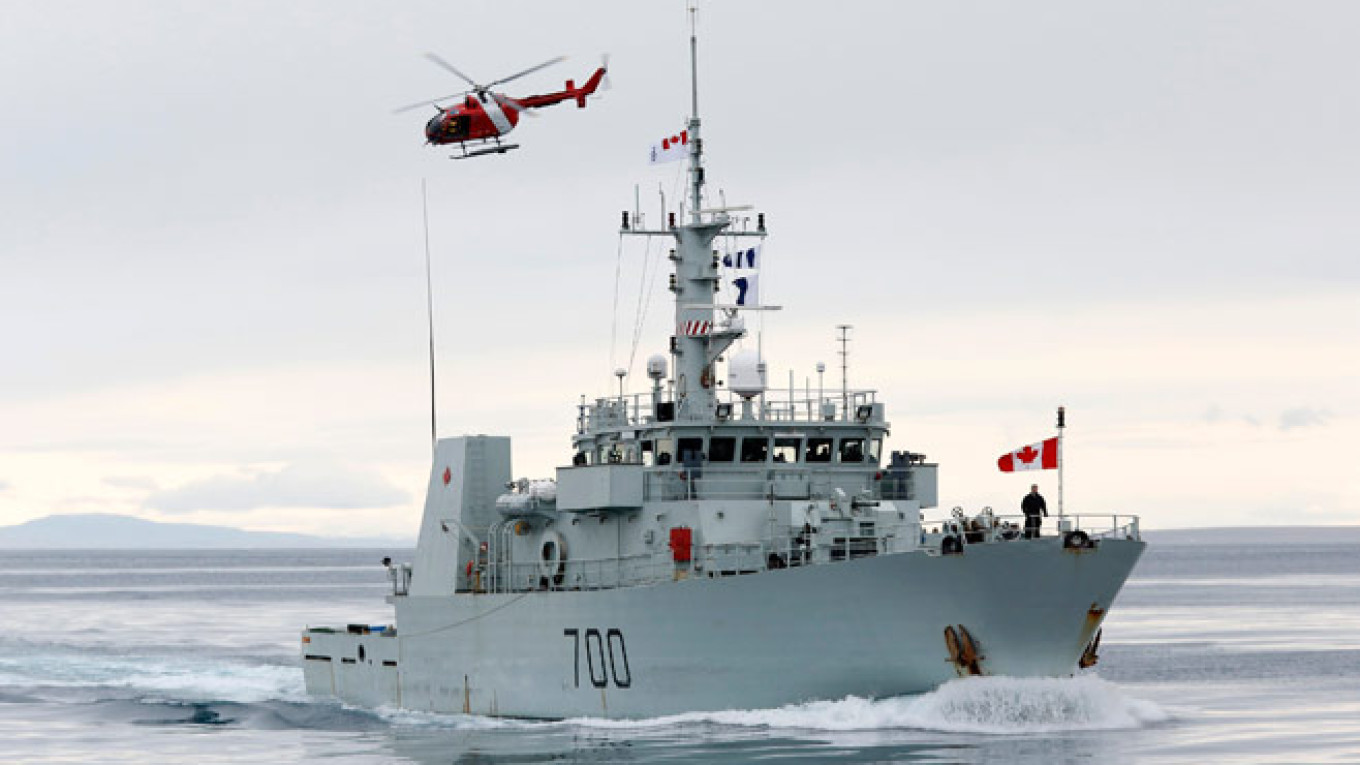Correction appended
Canadian Foreign Minister John Baird has expressed alarm over Russian military expansion in the Arctic, the BBC's Russian service reported Tuesday, citing a Danish newspaper.
"We are deeply concerned. We obviously want to protect and promote Canadian sovereignty in the Arctic," Baird was cited as saying by a Foreign Affairs Ministry spokesperson.?
"It’s a strategic priority for us. With respect to the militarization, we’d prefer to de-escalate it, but Canadian sovereignty, it’s very important that we protect and promote it," Baird was quoted as saying.
The comments were originally made to Danish newspaper Berlingske. On Monday, Baird met with his Danish counterpart Martin Lidegaard to discuss the ongoing Ukraine conflict, according to ITAR-Tass.
The crisis in Ukraine, which has pitted Western nations against Russia for its alleged involvement in the country's conflict-torn east, has proven detrimental to Russia's cooperation with other nations in the Arctic, the report said.
Baird called on other members of the Arctic Council — which, apart from Canada, include Finland, Norway, Iceland, Sweden, Denmark, Russia and the U.S. — to "sit down and solve these problems in a constructive manner," ITAR-Tass reported.
In recent years, Russia has moved to strengthen its grip on the Arctic and bolster its military presence there, with the Defense Ministry hoping to establish a military zone in the region.
Russia began expanding its Arctic presence last year by reopening a military base in the Novosibirsk Archipelago, which had been abandoned decades earlier. The base has now been reinforced with several warships and nuclear-powered icebreakers.
President Vladimir Putin has also made no secret of the region's strategic importance for Russia, urging officials to make the development of the area's vast untapped natural reserves a priority at a meeting of the Security Council in January.
Canada has not shied away from demonstrating its own Arctic ambitions, having dispatched two icebreakers to the area in early August tasked with mapping out the Lomonosov Ridge, an area also partially claimed by Russia and Denmark.
Russia's Arctic zone accounts for about 21.6 percent of its territory and is home to 2.3 million of its people. Canada's Arctic region is similarly substantial, making up over 40 percent of the nation's landmass and serving as home to more than 100,000 citizens, according to the Canadian government's website.
This article has been corrected to include the original English-language comments made by Canadian Foreign Affairs Minister John Baird. An earlier version of this story cited a translation of Baird's comments as reported by Berlingske, which a Foreign Affairs Ministry spokesperson said were incorrectly translated from English to Danish.
Contact the author at a.quinn@imedia.ru
A Message from The Moscow Times:
Dear readers,
We are facing unprecedented challenges. Russia's Prosecutor General's Office has designated The Moscow Times as an "undesirable" organization, criminalizing our work and putting our staff at risk of prosecution. This follows our earlier unjust labeling as a "foreign agent."
These actions are direct attempts to silence independent journalism in Russia. The authorities claim our work "discredits the decisions of the Russian leadership." We see things differently: we strive to provide accurate, unbiased reporting on Russia.
We, the journalists of The Moscow Times, refuse to be silenced. But to continue our work, we need your help.
Your support, no matter how small, makes a world of difference. If you can, please support us monthly starting from just $2. It's quick to set up, and every contribution makes a significant impact.
By supporting The Moscow Times, you're defending open, independent journalism in the face of repression. Thank you for standing with us.
Remind me later.


